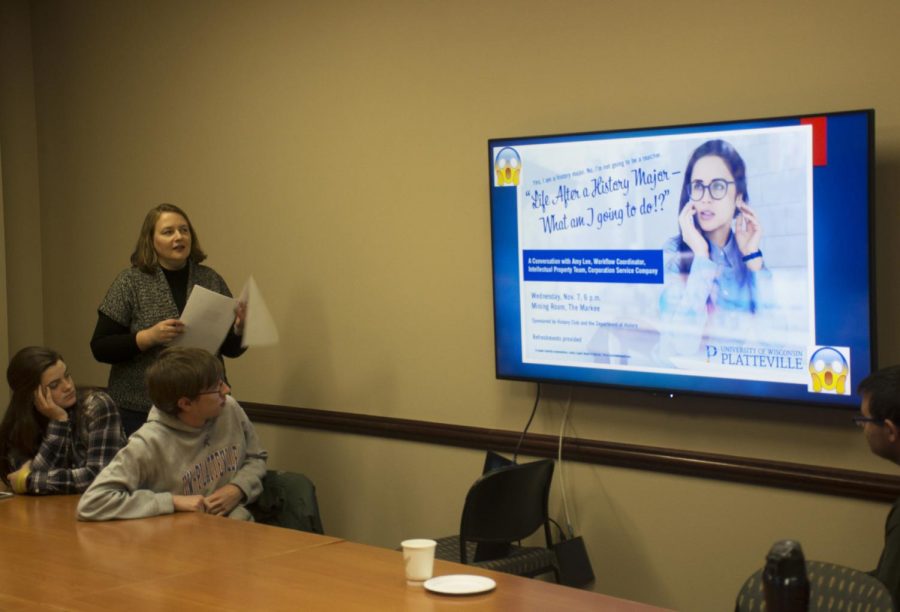History students explore post-grad opportunities
Local history majors at University of Wisconsin-Platteville recently attended a discussion hosted by Amy Lee, a fellow history major who graduated from Luther College in Northeast Iowa and completed her master’s degree in library and information studies at UW-Madison.
The event was hosted by the Platteville History Club and was titled “Life After a History Major – What am I going to do?!” Lee is currently working at Corporation Service Company in Madison, Wisconsin, as a Research and Intellectual Property Enforcement Analyst. This 120-year-old trademark company started in Delaware and serves as a “company that helps start other companies” as Lee described. CSC deals in intellectual property rights for companies, assisting in enforcing trademark law, drafting cease and desist letters and acting as a corporate domain registrar. Clients of the company reach out to Lee to organize information and answer complex questions regarding trademark law and formulate cohesive explanations about where and why there are discrepancies in IP claims.
Lee found that her history skills worked well in this type of job. Where many history students are thought to only want to be teachers, Lee sought an alternative path. Working through her bachelor’s degree, Lee learned many skills through studying history that made her a good candidate for this line of work at CSC, such as critical thinking and analysis.
“I always liked research and museums. I worked at the Luther College Archives. I knew I didn’t want to be a teacher,” Lee said. She described that employers look for people with writing skills and those who enjoy research.
Dispelling myths surrounding history degrees was a major talking point of the presentation, the first of which was the employment rates of history students.
“Only 4.6 percent of history students are unemployed,” Lee said. Lee dispersed the myth that history does not prepare you for gainful employment. “15 percent of history majors go into business, 11 percent into legal work, 18 percent into education, and 1.6 percent into food services.”
Winnifred Redfearn, the president of the History Club, invited Amy Lee to campus to talk about the benefits of studying history in college.
“I learned that it is okay to not take the ‘traditional’ route after getting a history degree. History is a valuable asset and teaches you how to think, research and write and is applicable in almost any field of work,” Redfearn said.
Amy Lee and Winnifred Redfearn had worked with one another prior to the event. Redfearn worked as an intern for CSC in the summer of 2017 serving as an Enforcement and Acquisition Administrative intern. Lee was the supervisor of the program and taught her interns how to draft cease and desist letters and how to communicate information effectively to clients. The requirements of the internship are steeped in history-taught skills.




